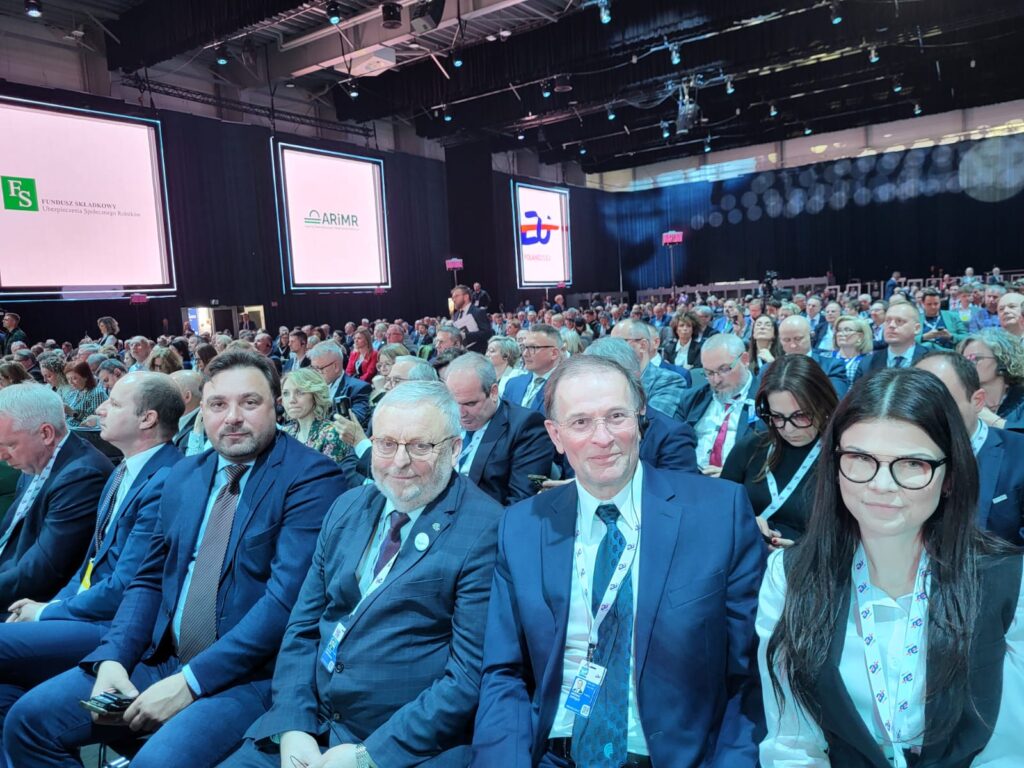On May 9, the President of the Chamber of Agriculture of the Republic of Lithuania (ŽŪR), Dr. Arūnas Svitojus, and Board Member Andžej Kulevičius participated in the European Congress for Rural Renewal and Development, held in Poznań, Poland. The three-day high-level event was organized by the Polish Ministry of Agriculture and Rural Development, bringing together agricultural and rural self-government leaders and ministers of agriculture from 15 countries. The Congress, dedicated to celebrating Europe Day, was opened by Poland’s Minister of Agriculture and Rural Development, Czesław Siekierski.
The main theme of the Congress was how Europe’s rural areas can become vibrant, innovative, economically strong, and socially inclusive communities.
“A multifunctional countryside must encompass not only agriculture but also social services, digital infrastructure, local businesses, energy, tourism, and culture. It must be addressed through cross-sectoral policy, where the Common Agricultural Policy (CAP) is just one of the components. Local self-government plays a crucial role in this,” emphasized Dr. Arūnas Svitojus.
“Rural self-governance institutions such as Chambers of Agriculture play an essential role by representing the interests of the agricultural sector, uniting rural communities, organizing educational activities, introducing innovations, and encouraging cooperation both nationally and internationally. The Chambers of Agriculture in Lithuania and Poland maintain an active, long-term, and mutually beneficial cooperation, which strengthens the voice of farmers, foresters, and rural communities both nationally and at the EU level.
This connection is based not only on geographic proximity but also on shared values — self-governance, social dialogue, sustainable farming, and sectoral representation in the European Union.
Farmers in Lithuania and Poland face similar challenges: CAP reform, Green Deal requirements, and market fluctuations. By forming joint positions, both countries strengthen their voice in EU institutions, especially within Copa-Cogeca, the European Commission, and the European Parliament,” added Dr. Svitojus.
Among the speakers was EU Agriculture Commissioner Christophe Hansen, who presented the “Vision for Agriculture and Food” — a document by the European Commission, first introduced on February 16, 2024, in Brussels. This document outlines possible development scenarios for European agriculture in the coming years and sets the stage for in-depth expert discussions.
“The countryside is our culture, our heritage, and at the same time a strong economic sector. One of the goals of the Common Agricultural Policy is to promote investment in rural areas.
We want future generations to live in the countryside — but to make that possible, we must provide the right support and enabling conditions,” emphasized Commissioner Hansen.

